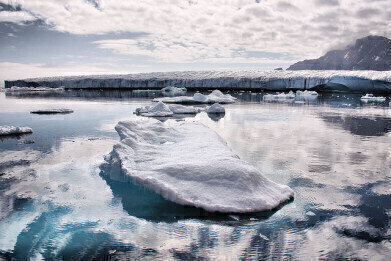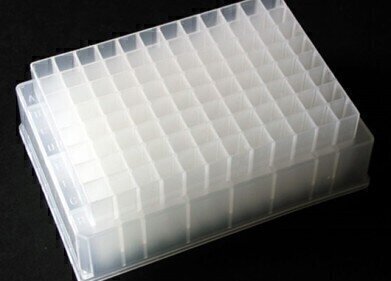Preparative
Revealing the Climate of the past with Ice and Ion Chromatography
Dec 01 2014
Have you wondered what the weather was like millennia ago? If we are affecting the world’s global temperature now through man-made climate change, what was it like before? Was it constant back then or affected by other factors aside from human folly?
Such questions have historically been merely rhetorical. However, due to the wonders of modern sciences, and in particular, the practice of ion chromatography, we might actually be able to get some answers.
Uncovering the past with chromatography
Recently a team of scientists from the Ice Core Lab at Dartmouth College in the USA has used the technique of chromatography to try and answer these questions. The team used ion chromatography to analyse glacial samples taken from such far-flung places as Alaska and Greenland. This included up to 400 different samples on a daily basis.
By studying the anions and cations and the concentration of major ions in the samples, scientists extrapolated data about time scales and thus apply it our existing knowledge of the world’s historical climate. Such information is not only invaluable to understanding more about how our planet used to look and feel, but also in predicting the future of global warming.
By analysing the makeup of these ice blocks, right down to miniscule particles of pollution such as traces of radioactive fallout, base metals or sulphate, the scientists determined where exactly they came from and whether the ice sheet covering Western Antarctica melted the last time temperatures reached such dizzying heights as has been predicted for the future of our planet in the next two centuries.
The samples, collected in one inch-by-one inch pieces, are crushed under a vacuum hood and then ran through various chromatographic instruments, such as mass spectrometers, gas chromatographs ad electron microscopes, which are adept at identifying these tiny pollution particles. In such operations, the utmost cleanliness is vital, since every single bubble of air or particle is crucial in getting an accurate reading. “Even just a fingerprint from a scientist holding the core can ruin the sample,” says Erich Osterberg, Assistant Professor at the Department of Earth Science in Dartmouth.
125,000 years ago was the last time the planet warmed to the same temperature that climate change is expected to affect within the next 200 years. Although as yet the studies are inconclusive, Osterberg and his team are confident that they will be able to determine whether the ice sheets were melted last time around – and as such, whether they will again. This will prove vital in assessing whether many coastal regions are under threat from flooding in the near future.
The use of ion chromatography with capillary columns in such studies has yielded significant benefits. Not only have detection limits been pushed further due to the increased sensitivity of the process, but fewer samples are now required to obtain an accurate result.
Furthermore, reagent-free chromatography allows for electrolytical creation of eluents and regenerants – as opposed to traditional manual methods. This saves a significant amount of time and labour on behalf of the scientists involved, thus allowing for reduced expenses and quicker results.
Other projects…
The process of chromatography has helped us shed light on the past before. Earlier this year, a team of scientists from the University of York were successful in analysing resin from Egyptian mummified remains dating back all the way to 4,500 BC. Such a breakthrough shed significant light on mummifying practices and has led historians to believe that the ritual is far older than previously assumed. For more information on the topic, read the article: How Old Are Mummies?
As well as answering interesting questions about how we as a species lived, chromatography is also now beginning to unearth details that far pre-date human existence on the Earth. Ion chromatography is a specialised branch of the discipline that concentrates on separating ions and polar molecules into their various components. For a more in-depth example of ion chromatography, this article, A Versatile Platform for the Analysis of RNA, goes into more detail about the science and applications.
Image Source: Greenland
Digital Edition
Chromatography Today - Buyers' Guide 2022
October 2023
In This Edition Modern & Practical Applications - Accelerating ADC Development with Mass Spectrometry - Implementing High-Resolution Ion Mobility into Peptide Mapping Workflows Chromatogr...
View all digital editions
Events
Jan 20 2025 Amsterdam, Netherlands
Feb 03 2025 Dubai, UAE
Feb 05 2025 Guangzhou, China
Mar 01 2025 Boston, MA, USA
Mar 04 2025 Berlin, Germany












